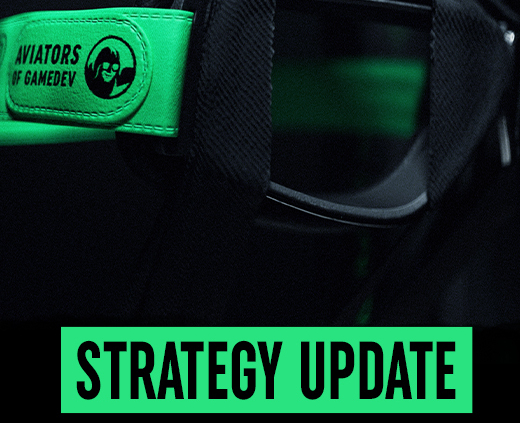PCF’S STRATEGY UPDATE – NEW OPENING
WE HAVE UPDATED OUR STRATEGY AND ARE NOW FOCUSING ON SELF-PUBLISHING
Our management board adopted a development strategy update for the entire People Can Fly group according to which most of the games from our portfolio will be developed in the self-publishing model.
“Two years after our IPO, we can state that all our short-term strategic goals have been achieved or exceeded,” said Sebastian Wojciechowski, CEO of People Can Fly. “We have expanded our production teams and signed on world-class professionals, from creative directors to developers. They are the elite of the gaming industry. Many of them have collaborated with the most admired studios, creating games that have won acclaim among players and achieved commercial success. We also conducted an internal transformation, from our method of working on projects to global reinforcement of support structures. We have the resources, experience and knowledge to work effectively on several projects simultaneously. Since our debut on the Warsaw Stock Exchange, our teams in North America have begun work on two entirely new games from the AAA segment, with attractive target groups, which today are in the pre-production phase.”
In the last two years we have successfully completed work on the Outriders game and the expansion Outriders: Worldslayer, in cooperation with Square Enix. Moreover, we greatly strengthened our development teams – in numbers and competencies – among other things thanks to the acquisition of new teams in the United States, Canada, and Poland. There are now over 600 Aviators working worldwide, as compared to 280 at the end of 2020.
Vladimir Makarychev, our Head of Publishing, commented: “The company has also built up knowledge, skills, and resources to successfully self-publish games. We are now ready to bring our games to gamers entirely on our own. We have no doubt that in the longer perspective, this may be a much more profitable business than the model to date of cooperating with publishers. Self-publishing a game gives us greater control over the development process, choice of the optimal monetization model, and shaping the marketing, sales and distribution strategy. Self-publishing obviously also allows the developer to retain a larger percentage of the sales revenue. We are aware that this model carries greater risk, but we can mitigate the risk by diversifying the portfolio of games and developing multiple games simultaneously.”
We are currently working on seven projects at various stages of advancement. The game code-named Project Thunder for virtual reality (VR) platforms, developed by the group subsidiary Incuvo, will be launched later in 2023. Incuvo is also working on Green Hell VR, which launched last year on the Oculus Quest 2, Oculus Rift and Pico platforms and PC, and this year is slated for release on further VR platforms (HTC and Sony). Meanwhile, four games from the AAA segment are now in the pre-production phase. We plan to release three of them – Project Dagger, Project Bifrost and Project Victoria – in the self-publishing model, with launches planned for 2025–2026. And the launch of Project Gemini, which we are developing with our long-time publisher, Square Enix, is planned for 2026. Another game in our pipeline is Project Red, currently at the concept stage.
We will continue to collaborate with reputable partners using the work-for-hire model on selected projects, if attractive opportunities for such cooperation arise. These arrangements provide financial stability for the company, with room to experiment and innovate, and if the projects breakeven, generate additional financial benefits.
The key principles of our updated strategy also include expansion of development teams and raising their professional qualifications, while maintaining high employee retention and satisfaction and the unique organizational culture.









Follow PCF on: